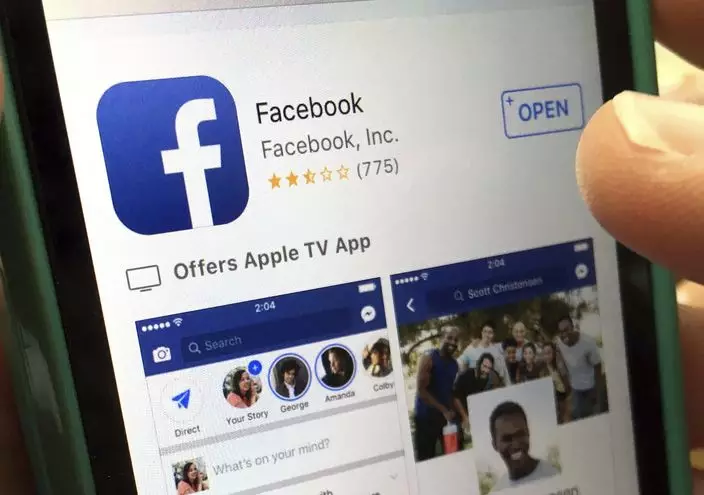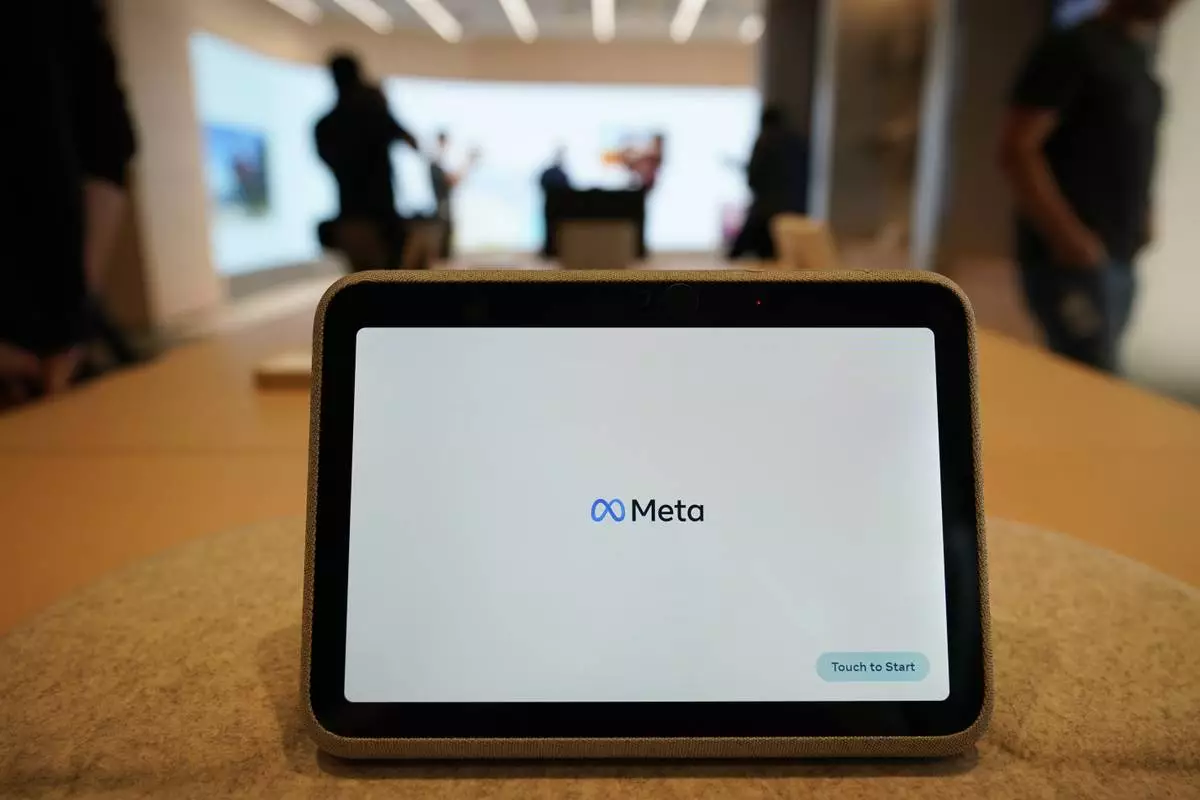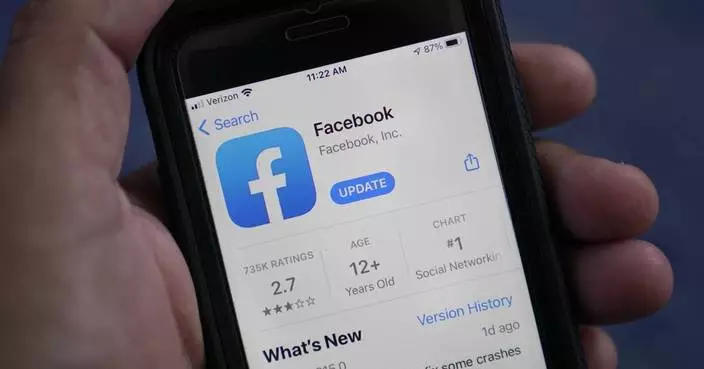Facebook's effort to limit the spread of fake news using outside fact-checkers appears to be having an effect — although that finding comes with a major caveat.

FILE - In this Monday, June 19, 2017, file photo, a user gets ready to launch Facebook on an iPhone, in North Andover, Mass. Facebook’s efforts to reduce the spread of fake news using outside fact-checkers may be working, but with a big caveat. (AP Photo/Elise Amendola, File)
Once a story receives a false rating from a fact-checker, Facebook says, subsequent "impressions" can fall off by 80 percent. Impressions count the number of times Facebook users see a particular post.
But it routinely takes more than three days for a false story that appears on Facebook to be passed along to fact-checkers and given a false rating. And most impressions occur when the story first comes out, not three days later. That's the case with all news, both true and fake.
The information was shared in an email from a Facebook manager sent to the company's fact-checking partners, including The Associated Press. Facebook gave an AP reporter access to the email.
Jason White, Facebook's manager of news partnerships, wrote in the email that the company is working to identify "these hoaxes sooner."
"We also need to surface more of them, as we know we miss many," he wrote.
At the same time, he added that it is "equally important we do this the right way, and don't restrict legitimate speech. It's a difficult tension, but we are confident we can improve our efforts."
Facebook has long stressed that it only wants to go after the "worst of the worst" offenders when it comes to false news and hoaxes. While many stories may be disputed as biased or partially false, the company is trying to avoid the appearance of censorship.
This is also why, as part of its fact-checking program, a story must be found false by at least two fact-checkers before Facebook will label it as "disputed."
Facebook and Instagram parent company Meta said Wednesday its first-quarter profit more than doubled, boosted by higher advertising revenue and a 6% increase on the average price of ads on its platforms. But its shares dropped sharply in after-hours trading following lukewarm revenue guidance.
Meta Platforms Inc. earned $12.37 billion, or $4.71 per share, in the January-March period. That's up from $5.71 billion, or $2.20 per share, in the same period a year earlier.
Revenue rose 27% to $36.46 billion from $28.65 billion.
Analysts, on average, were expecting earnings of $4.32 per share on revenue of $36.14 billion, according to a poll by FactSet.
For the current quarter, the Menlo Park, California-based company said it expects revenue between $36.5 billion and $39 billion. Analysts are expecting revenue of $38.25 billion for the second quarter, which is higher than the midpoint of Meta's guidance range.
Meta also said it expects its 2024 capital expenses to be higher than anticipated due to its investments in artificial intelligence. It is forecasting expenses in the range of $35 billion to $40 billion, up from its earlier guidance of $30 billion to $37 billion.
The company has been investing heavily in AI and earlier this month unveiled a new set of artificial intelligence systems that are powering what CEO Mark Zuckerberg calls “the most intelligent AI assistant that you can freely use.”
Meta, along with leading AI developers Google and OpenAI, and startups such as Anthropic, Cohere and France’s Mistral, have been churning out new AI language models and hoping to persuade customers they’ve got the smartest, handiest or most efficient chatbots.
“Meta’s earnings should serve as a stark warning for companies reporting this earnings season," said Thomas Monteiro, senior analyst at Investing.com “Even though the company did beat estimates in all top- and bottom-line metrics, it didn’t matter as much as the reported lowering revenue expectations for Q2. This is the exact opposite of what Tesla did yesterday and goes to show that investors are currently looking at the near future with heavy mistrust.”
On Tuesday, electric vehicle maker Tesla reported that its first-quarter net income plummeted 55%. But it said it would accelerate production of new, more affordable vehicles, and on Wednesday its stock rose 12%.
The number of people using Meta's apps, meanwhile, continued to increase, with 3.24 billion users on average for March in its “family of apps” that includes Facebook, Instagram, WhatsApp and Messenger. That's up 7% year-over-year. Beginning this quarter, the company will no longer disclose user figures for Facebook.
Meta had 69,329 workers as of March 31, a decrease of 10% year-over-year. Zuckerberg called 2023 the “year of efficiency" and the company laid off thousands to reduce expenses.
Meta's shares fell 16% in after-hours trading. Meta's stock price has more than doubled over the past year thanks to a rebound in online advertising.

FILE - A Meta Portal Go is displayed during a preview of the Meta Store in Burlingame, Calif., on May 4, 2022. Meta reports earnings on Wednesday, April 24, 2024. (AP Photo/Eric Risberg, File)








